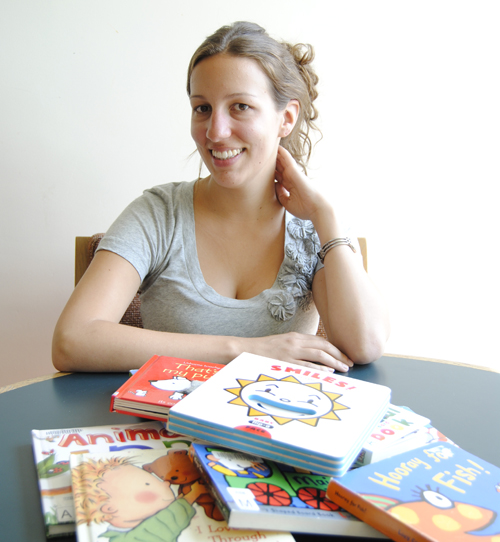
Meredith Pike is hoping her research will eventually help those children who fall through the cracks when it comes to literacy. Now in the third year of her PhD in clinical psychology, she’s focused on understanding what skills are involved in determining whether a child will succeed at reading comprehension.
Up to 10 per cent of children struggle with understanding what they read, says Pike. “In the past, the focus has been on getting kids to read words, but we are realizing that isn’t enough. Children with a learning disability specific to reading comprehension can often read words at an age-appropriate level but have difficulty understanding the meaning of what they are reading.
“These children often aren’t identified until the later grades when the emphasis becomes more on reading to learn rather than learning to read; at this point, they are already falling behind.”
Pike says the ultimate goal of her research is to determine how to best assess a child’s level of reading comprehension and figure out the most effective approaches for intervention, including which skills to target.
“I think this research has the opportunity to make a huge impact on a number of kids,” she says. “Every child has to learn to develop broad-based literacy skills in life, and a lot are being short-changed because the curriculum is developed on a model that this subgroup of kids isn’t responding to.”
Pike, along with psychology professors Marcia Barnes and Roderick Barron, recently published a study in the Journal of Experimental Child Psychology that looks at the role illustrations play in reading comprehension. The study revealed that illustrations in books can either help or hinder children’s ability to understand what they are reading, depending on the age of the child and whether the illustration fits with some of the most important parts of the story.
Their research focused on the impact illustrations have on children’s ability to make inferences. Making inferences involves making connections between information in the text and filling in details that are not explicitly mentioned. It is an important part of reading comprehension, and Pike says children who struggle to understand what they read often have weak skills in this area.
“We found that pictures have an effect on children’s ability to make inferences; if the picture represents irrelevant information, it could lead to a misunderstanding of the text,” she says.
As part of the study, participants enrolled in grades 2 through 6 were asked to read a short story and make an inference to accurately predict what would happen next. The paragraphs were presented in three different ways: with a picture that contained information relevant to making the inference, with a picture that contained information irrelevant to making the inference but still fit with the general theme of the story, and with no picture.
The study found that the illustration significantly influenced children’s ability to make inferences in that they were most likely to choose the answer related to what was depicted in the illustration.
“We also found that younger children were more influenced by illustrations than older children,” says Pike. “This means it’s important to ensure the illustrations in the books these children are reading are depicting information significant to the story.”
While most children develop the ability to make inferences through experience listening to stories and then reading stories and other kinds of texts, there seems to be a small subgroup of children for whom this skill must be explicitly taught, she adds.
Pike recently presented a second study on reading comprehension at a conference in Berlin. This study looked specifically at children’s ability to connect their own prior knowledge with the information they read, a skill called knowledge-based inferencing. Participants in grades 3 through 8 were taught 14 facts about a make-believe world. The children then read a story and answered questions that required them to connect information in the story with information in their knowledge base. The study found that knowledge-based inference skill improves with age, that certain memory processes are important for this skill, and that this skill was a significant predictor of overall reading comprehension ability.
Pike’s passion for uncovering information that could improve the situation for children who have trouble with learning began with her undergraduate work at Dalhousie University, where she worked on cognitive processing in children with ADHD (Attention-Deficit Hyperactivity Disorder).
She says her research and clinical experiences have solidified her understanding that having a learning disability doesn’t mean a child cannot learn. “They can learn; they just sometimes need to be taught in a different way or have extra supports in place. As researchers and educators, it’s our job to determine the best methods for teaching reading comprehension to students who struggle, in order to maximize their success at school and in life.”